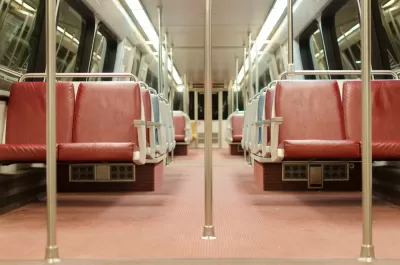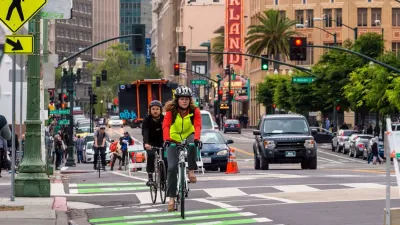A location data company has created a Social Distancing Scorecard to track the progress of Americans, down to the county level, in reducing travel in accordance with recommendations to reduce physical contact.

Unacast, a mobility data company based in New York and Oslo, has created a Social Distancing Scoreboard to track the success of Americans in reducing travel in the days and weeks since the coronavirus pandemic has spread across the country.
A blog post by Thomas Walle, CEO and co-Founder, of Unacast, explains the Scoreboard's methodology. The company uses its Real World Graph® data engine to identify geospatial mobility data. After several iterations, the company decided to use "change in average distance traveled" as its metric for the Scorecard.
As for the final tally, the Scorecard assigns letter grades based on whether the change in average mobility has dropped more than 40 percent (an A Grade), between 30 and 40 percent (B), 20 to 30 percent (C), 10 to 20 percent (D), and less than a 10 percent decrease (an F grade).
The Scorecard includes a grade for the entire United States (B), as well as grades for every state and county. The five states leading the social distancing effort, as of this writing: the District of Columbia (considered a state here), Alaska, Nevada, New Jersey, and Rhode Island. The states reducing average distance traveled the least, as of this writing, are Wyoming, Montana, Idaho, New Mexico, and Oregon.
For an additional comparison, the state currently considered the hot bed of the pandemic, New York, has reduced average distance traveled by 48 percent. The country's most populous states, California, has also reduced average distance traveled by 48 percent. Both of those metrics were last updated on March 24 as of this writing.
Unacast is promising that the Social Distancing Scorecard is only the first of multiple releases it has planned for a COVID-19 Toolkit.
FULL STORY: Social Distancing Scoreboard

Alabama: Trump Terminates Settlements for Black Communities Harmed By Raw Sewage
Trump deemed the landmark civil rights agreement “illegal DEI and environmental justice policy.”

Study: Maui’s Plan to Convert Vacation Rentals to Long-Term Housing Could Cause Nearly $1 Billion Economic Loss
The plan would reduce visitor accommodation by 25% resulting in 1,900 jobs lost.

Planetizen Federal Action Tracker
A weekly monitor of how Trump’s orders and actions are impacting planners and planning in America.

Restoring Northern India’s Himalayan ‘Water Temples’
Thousands of centuries-old buildings protect the region’s natural springs and serve as community wells and gathering places.

Milwaukee to Double Bike Share Stations
Bublr Bikes, one of the nation’s most successful, will add 500 new e-bikes to its system.

DC Extends Application Window for Outdoor Dining Permits
District restaurants will have until the end of November to apply, but businesses with permits in rush hour parking lanes must end operations on July 31.
Urban Design for Planners 1: Software Tools
This six-course series explores essential urban design concepts using open source software and equips planners with the tools they need to participate fully in the urban design process.
Planning for Universal Design
Learn the tools for implementing Universal Design in planning regulations.
Caltrans
Smith Gee Studio
Institute for Housing and Urban Development Studies (IHS)
City of Grandview
Harvard GSD Executive Education
Toledo-Lucas County Plan Commissions
Salt Lake City
NYU Wagner Graduate School of Public Service





























